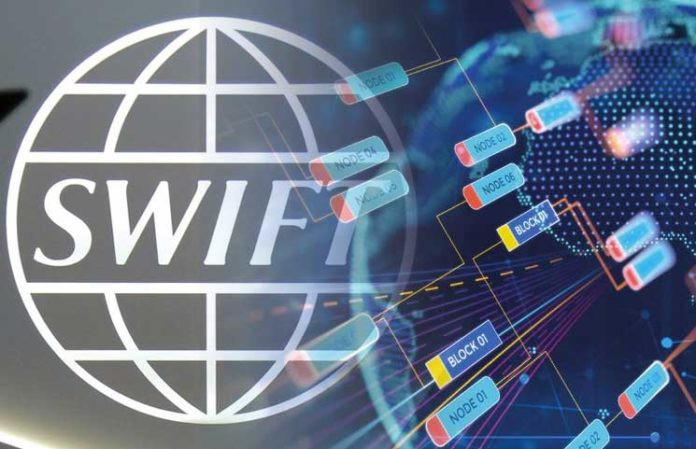
I had a fascinating conversation the other day, and shouldn’t share it here but hey, it’s my blog. I was talking about my understanding of SWIFT and how Yawar Shah, Chair of the Association, is killing it. I must admit, it had not occurred to me re the politics of SWIFT, until that discussion, as I have not been to SIBOS for a while, but the conversation did put it in context.
Way back when, Lenny Schrank was Chief Exec. I liked Lenny and his mission in life was primarily to reduce transactional costs for cross-border payments for their bank members. Back in the 2000s, I think he achieved that. Bear in mind, the infrastructure was big and global and constrained by last century technologies, and that was quite an achievement.
Then Lenny retired. His successor was Lazaro Campos, who created Innotribe, and he and his team became good friends with each other and with me. Peter Vander Aurea, Matteo Rizzi, Kosta Peric, Martine De Weirdt, Mariela Atanassova and company created a visionary group that was talking about cloud, bitcoin and stuff way back in 2010.
Thing is that the vision was too much for some, so Lazaro and the innotribe team were squeezed out, and the innovation program was reigned back to being more payments and banking focused.
Fair enough.
Then Gottfried Leibbrandt took over. Gottfried is ex-McKinsey and was chartered to get the community back on an even keel, with the focus shifting back to reducing transactional costs. Thing is that Gottfried had that role for seven years (2012-2019) and yes, delivered, but that was all through the years of FinTech and payment challengers like Ripple, Stripe and co.
The balance between serving the community with lowered costs versus meeting the needs of the future, created greater and greater tension in the boardroom. Specifically, the challenge was about these developments and how SWIFT was responding. Yes SWIFT, who gradually converted to Swift (who remembers that it stands for the Society for Worldwide Interbank Financial Telecommunication?), needed to do something. Sure, they created things like the Swift-gpi, a competitor with the distributed ledger offers of Ripple and R3, but it was a struggle to squeeze that one out the door, let alone anything else.
Gottfried sensed that the loss of the innotribe pulse was causing challenges or, to be more exact, the loss and lack of vision and commitment to enable Swift to meet the challenges of the rise of FinTech and digital currencies. Gottfried quit with six months’ notice at the end of 2018, and has gone on to join the board of CLS, as well as advising McKinsey and the BIS.
Now SWIFT is run by Javier Pérez-Tasso. Who he? A 25-year plus veteran of SWIFT who rose through the ranks from customer support to marketing, the Americas and now leading the company into its uncertain future. He was selected for his internal knowledge, and that he would do what Yawar said. Yawar who, throughout all of these changes, has remained Chairman. He got the job in 2006, the last year of Lenny’s tenure, and has steered the organisation the way he wants ever since.
The thing is that Swift, a company created in the 1970s to deal with global transactions, is a bit like MasterCard and Visa were before their float. MasterCard and Visa are now proprietary companies acquiring innovations like Ekata, NETS, CurrencyCloud, Tink and changing fast. What has Swift acquired? Nowt.
This is because Swift is still a collegiate of banks, and they move at the speed of their slowest members. That was fine in the 1970s, when the banks got together to fund the massive investments in technology required for global expansion of payments (B2B and B2C). Today? It’s not so good. Even though 11,000 SWIFT member institutions sent over 35 million transactions per day through the network last year, it pales in comparison to companies like Ant Group who are processing 512,000 transactions per second on their platform (50 billion per day).
There are lots of networks out there for transactions and payments today. There are also many new contenders emerging from the FinTech world and, most importantly, they lost the Asian endorsement.
Swift has always tried to influence the rising nations to use their platform. China said no, and created their own Cross-Border Interbank Payment System (CIPS). It’s not surprising really, as Swift is seen as a puppet of America, after they agreed to release cross-border transaction data to the US Treasury. Why would they do that? Because the US Treasury subpoenas them every month to reveal and transmit transaction messages under the Terrorist Finance Tracking Program (TFTP).
Between half the world doing their own thing and the other half moving to modern and visionary FinTech innovations, I can’t help but see Swift as some old boys club that is losing relevance. The reason for that? Well, you decide.
In the spirit of ending with a positive note, I'm always available if you need any help guys. First recommendation is you need some new injection of vision, as in new blood. Second is that you probably need to become an independent organisation owned by banks, but with no bank members. Third, as a result you can stop listening to your bank members and listen to your brains. Fourth, think about what cross-border means in a network that recognises no borders. Fifth, start to acquire, partner and rebuild, based upon that premise.
Damn. Why should I give you your strategy. Find your own one.
Chris M Skinner
Chris Skinner is best known as an independent commentator on the financial markets through his blog, TheFinanser.com, as author of the bestselling book Digital Bank, and Chair of the European networking forum the Financial Services Club. He has been voted one of the most influential people in banking by The Financial Brand (as well as one of the best blogs), a FinTech Titan (Next Bank), one of the Fintech Leaders you need to follow (City AM, Deluxe and Jax Finance), as well as one of the Top 40 most influential people in financial technology by the Wall Street Journal's Financial News. To learn more click here...


